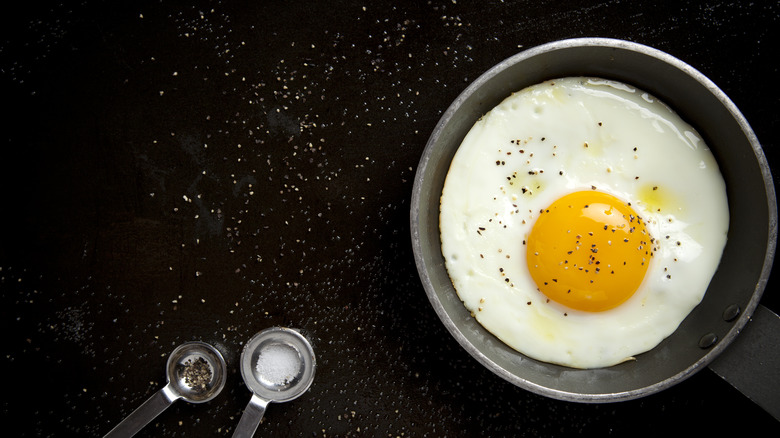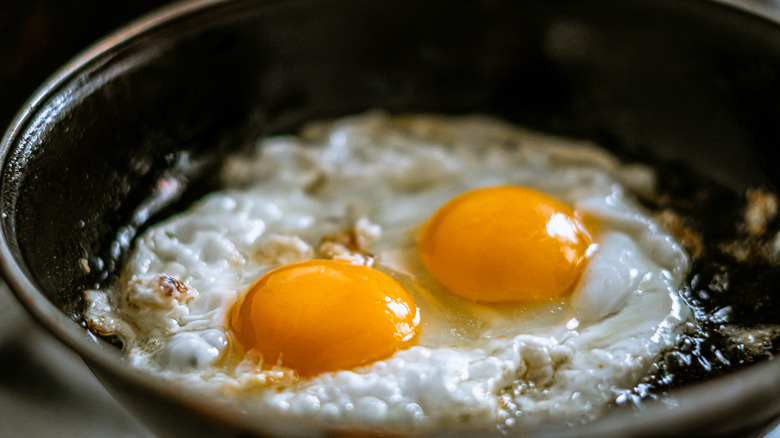The Secret To Perfect Fried Eggs Lies In The Pan Temperature
Although cooking a fried egg is something many might do almost every day, the results can often seem inconsistent. There are days when the yolk is runnier than others and days when the egg whites come out too loose. In fact, it can be difficult to cook the perfect fried eggs. Fortunately, here is the secret to forgetting all of your egg problems: Start with a cold pan, a nonstick one preferably.
Forget about waiting for your oil to warm on your skillet over medium or low heat. Add your preferred type of oil, eggs, salt, and pepper while the pan is still cold. When covering your pan with the lid, turn the heat to medium-low, and wait for a few minutes until your eggs are, well, perfect. The yolk will look silky and the whites chewy but solid — a total award-winning egg texture.
If you like your yolk runny, remove the eggs a little early. Likewise, let the eggs sit for a bit if you want them cooked longer. Crisp the edges by adding more oil around them, sprinkle them with red pepper flakes, or consider them ready to top toast or fried rice. You can also follow these tips to avoid an "eggmergency" in your kitchen.
Use fresh eggs and avoid using butter
Starting from the top, try using some fresh eggs, preferably recently bought for better quality. If they have been in your kitchen for a while, make sure they were stored properly in an egg casket in the coldest part of your fridge. According to Healthline, eating old eggs can put you at risk for salmonella and other bacteria so beware.
You can use any type of vegetable or chili oil, but olive oil guarantees better crispiness and browning in your eggs. Take some precautions though. For one, always add your oil first before cracking eggs, and be sure to use a decent amount of oil even when the pan is cold. If done inappropriately, your eggs can stick to the pan. Some people use butter to add a creamy result to their eggs, but this is not the best ingredient to use when working with a cold pan, as the butter won't melt without some initial warming.
Other cooking experts, including chef Jacques Pépin, suggest cracking your eggs in a separate container or bowl before transferring them to the pan, to avoid cracked shells or food contamination. Once you put this all into practice along with a cold pan, your fried egg mornings will never be the same.

